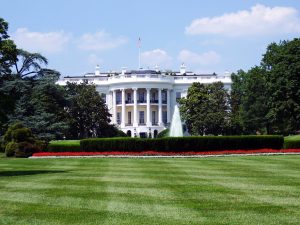Can Trump Ignore Medical Marijuana Protections Passed By Congress? He Says Yes.
In a recent statement on a large-scale federal funding bill that President Donald Trump signed into law, he released a statement indicating he reserves the right to essentially ignore any provision of law approved by Congress that seeks to shield medical marijuana laws from federal interference. 
The statement notes that Division B, section 531 of the Act disallows the U.S. Department of Justice from using funds made available under the act to prevent medical marijuana cultivation and distribution by the various states and territories where it’s allowed. The Trump administration, the statement said, would treat this provision in a manner consistent with the president’s constitutional duty to execute federal laws in good faith. As it stands, marijuana is still classified as a Schedule I narcotic under the Controlled Substances Act.
Our Los Angeles marijuana lawyers don’t necessarily take this to mean the president will ignore the Congressional block on DOJ funds or that we’ll start seeing any enforcement crackdown efforts again soon as we did a few years ago under the Obama administration. In fact, it might not mean much considering presidents often will sign statements like these while flagging certain aspects they believe might be an impediment to executive branch authority.
Ambiguous though the statement was, it still warrants some degree of concern. The effect of it is that the executive branch has expressly declared that it can broadly enforce U.S. drug laws against people or marijuana businesses, even if they’re in total compliance with state marijuana laws and even though Congress has instructed the executive branch to use a hands-off approach. Continue reading
 Cannabis Law Group's Medical Marijuana Legal Blog
Cannabis Law Group's Medical Marijuana Legal Blog







